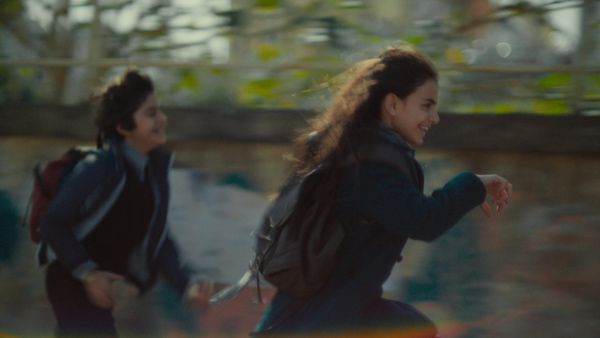No Man is an Island: Aris Explores Childhood, Couplehood and Parenthood with Flip Book Speeds
Lebanese filmmaker Cyril Aris utilizes the three distinct yet related measurements of time elapsed, time apart, and time away to craft an ode to the invisible, happy-chance forces that govern human connection. With a focus on the cosmos’s funny way of intervening in matters of the heart, his film, A Sad and Beautiful World, lackadaisically shifts across tones, eras, and economic struggles. At its core, the fiction offering captures an inner-child wonder that still nourishes some adults, raising the question of whether an individual will choose to break the cycle of circumstance or perpetuate it for the next generation. While following a cinematic tradition of using (false) hope to counter dire situations, the film’s whimsical and innocent style unfortunately glosses over some of its own more anchoring aspects, – on how people are forced apart or to part.
Set against the vibrant yet strained backdrop of a bustling cityscape, the often-blurred demarcations between its different time periods are sharply drawn by the state of Nino’s once-thriving restaurant, a microcosm of the nation’s struggles as it has trouble keeping afloat. The times are so persistently tough that even the amicable resolution of a sudden accident—is insight on survival and a scratch your back barter system. Within this fragile ecosystem, we meet Hasan (Hasan Akil of Memory Box) and Yasmina (played by filmmaker Mounia Akl), whose tentative reconnection forms the emotional core of the story which begins almost at birth (they were born one day apart). In their interactions, the film explores its central theme: how shared events are either fortified by memory or eroded by the weight of silence and time.

Written by Aris and Bane Fakih, the narrative is deeply embedded in the specific reality of a Lebanon (a country that runs on generators) —when the lights go out, or a missile shrapnel explodes they become powerful metaphors for a nation’s precarious state. As the film emphatically suggests, the people of Beirut are constantly faced with a choice: to find the energy to restart, or to finally give up. In retrospect, this explains the mass exodus where millions of Lebanese now live outside the country’s borders, sustaining themselves on the wishful thinking that has become part of the national DNA: “When things get better, we’ll go back to Beirut.”

A Sad and Beautiful World captures the tension between the desperate need to leave and the eternal longing to return but the playtime that Akil and Akl do get together plays more like a highlight real than dramatically compounding. With the relationship getting visual the footnote treatment there is a lack of mileage to explore their connection when confronted by bigger choices. This does not take away from the film’s playfulness – there are crafty moments of tenderness and inventiveness with a discussion told thru a peephole but its lacking a sort of Blue Valentine type depth that moment where two become three and where decisions are more consequential.
Reviewed on August 31st at the 2025 Venice Film Festival (82nd edition) – Giornate degli Autori. 110 Mins.
★★½/☆☆☆☆☆


